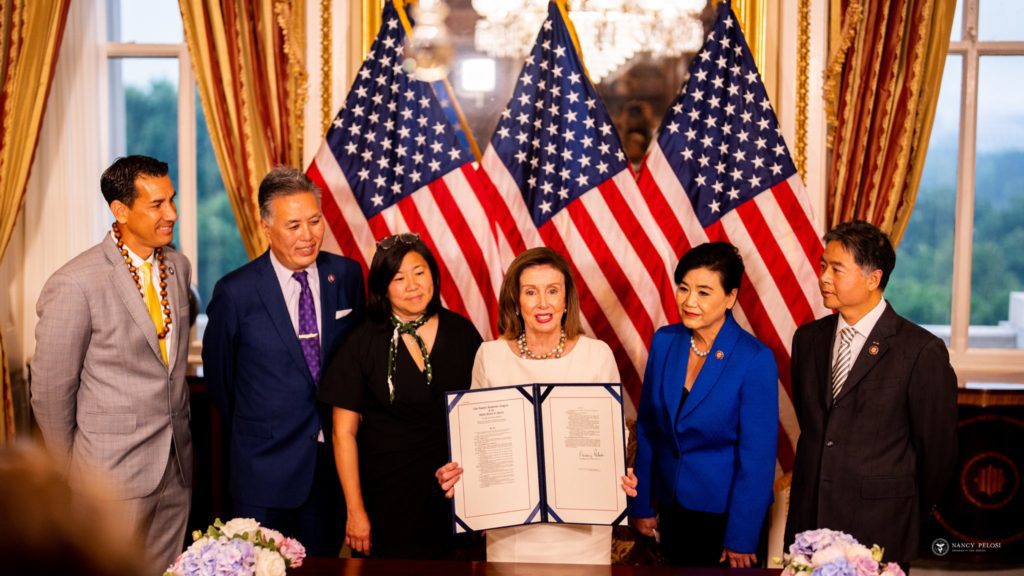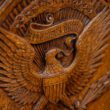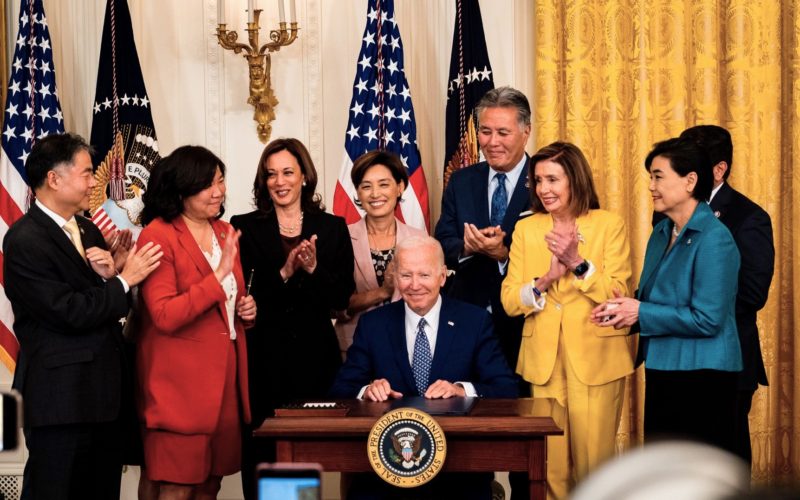Sign up here to receive The Yappie's weekly briefing on Asian American + Pacific Islander politics and support our work by making a donation.
President Joe Biden signed a bill Monday to establish a commission charged with studying the potential creation of a National Museum of Asian Pacific American History and Culture.
Introduced by Rep. Grace Meng (D-New York) in May 2021, the bipartisan bill cleared the House on April 26 and the Senate on May 18, both by unanimous consent. Meng had introduced similar bills in 2015 and 2019, but both died in committee.
In December last year, Meng testified before Congress in support of the museum alongside Stop AAPI Hate co-founder Russell Jeung and journalist Lisa Ling. Later that month, Meng and 14 other members of Congress urged the House Natural Resources Committee to bring the bill to a vote.
The act establishes an eight-person commission, to be appointed within three months, that will deliver to Congress a plan of action within 18 months of the commission’s first meeting.
The bill’s passage comes after two years of heightened national attention on the AAPI community due to a surge in anti-Asian violence.
Illinois, New Jersey, and Connecticut became the first states to pass legislation requiring the teaching of Asian American history in public schools, and a similar bill has been introduced in New York.
But the establishment of the museum itself is still most likely years, if not decades, away.


Similar commissions were established to study the creation of the National Museum of the American Latino in 2008 and the Smithsonian Women’s History Museum in 2014, but Congress didn’t approve the establishment of those museums until 2020.
The National Museum of African American History was likewise established by an act of Congress in 2003, but didn’t open until 2016.
Still, AAPI lawmakers and activists have celebrated the bill as a step toward combating anti-Asian violence and recognizing the AAPI community’s long history of resilience in the U.S.
“A museum that is dedicated to telling the story of our communities as part of American history not only helps educate our country about our accomplishments and struggles, but…is [also] a powerful tool to combat anti-Asian hate and xenophobia,” Rep. Judy Chu (D-California), chair of the Congressional Asian Pacific American Caucus, said in a statement after the bill cleared the House.
The Yappie is your must-read briefing on AAPI power, politics, and influence, fiscally sponsored by the Asian American Journalists Association. Make a donation, subscribe, and follow us on Twitter (@theyappie). Send tips and feedback to [email protected].









